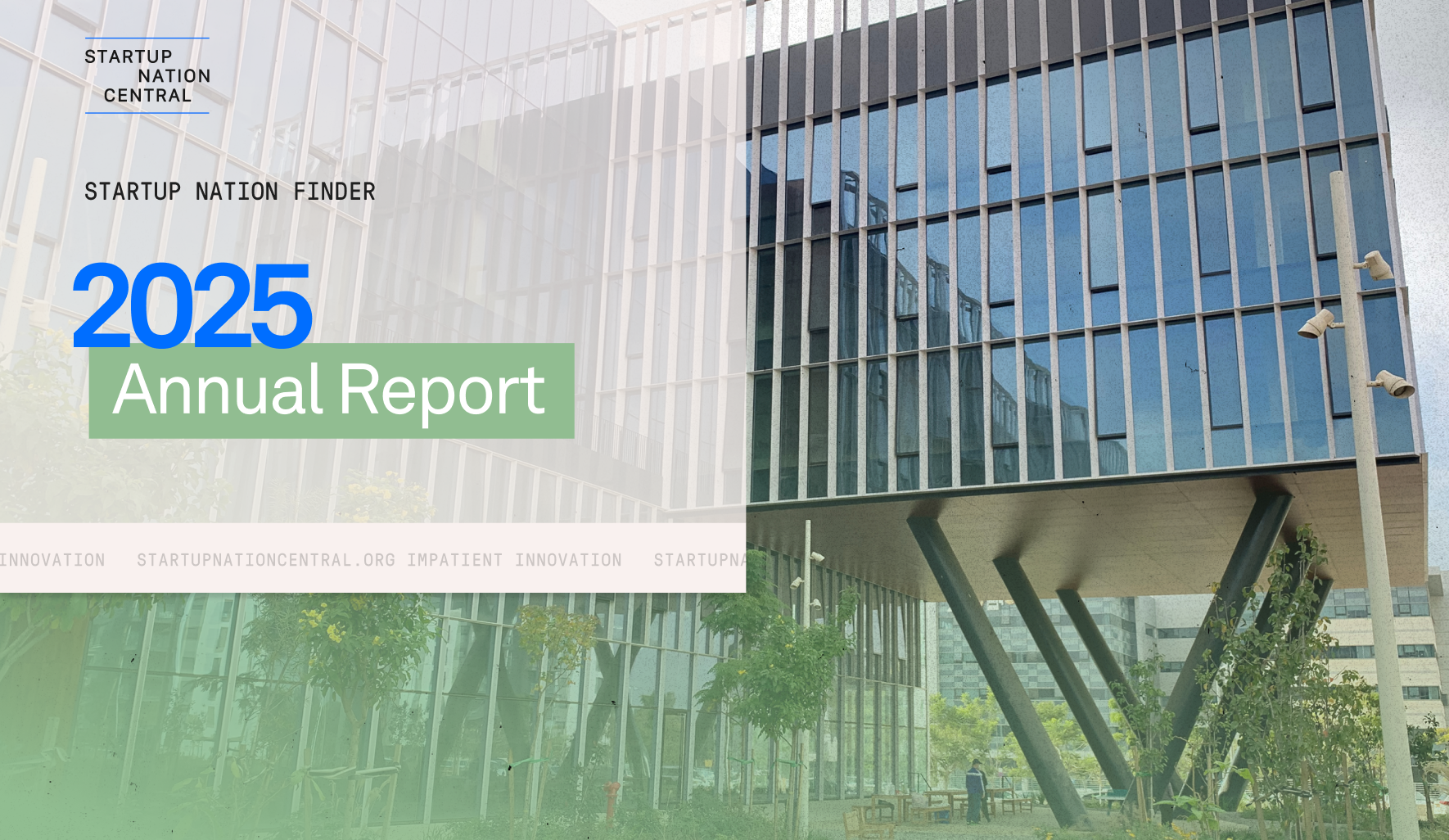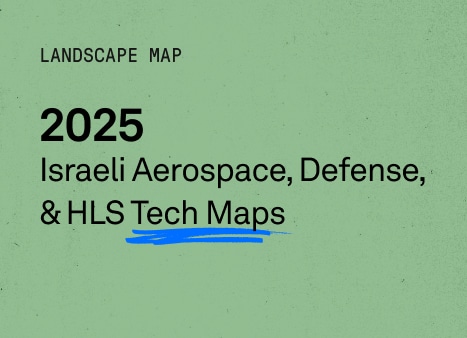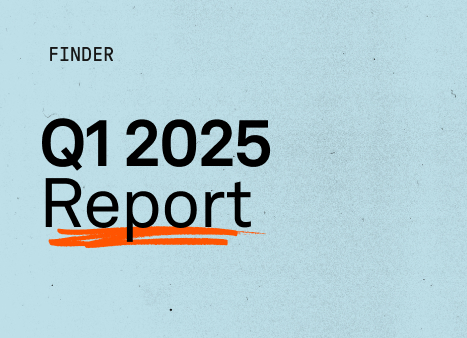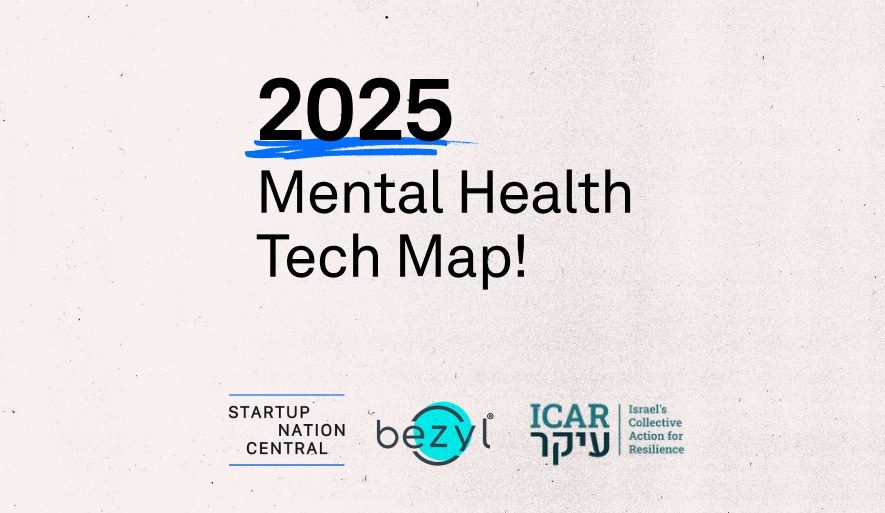

Startup Nation Economic Insights: Israeli High-Tech Resilience and Growth
A joint Spotlight by Startup Nation Finder and the Aaron Institute for Economic Policy
- August 2025
Data analysis and insights
Startup Nation Central: Brad Hofman, Data Analyst; Deema Wattad, BI Developer.
Aaron Institute for Economic Policy, Reichman University: Dr. Sergei Sumkin, Senior Researcher; Linor Kiknadze, Senior Researcher.
Editors
Startup Nation Central: Einat Ben Ari, Senior Director Data and Insights; Yariv Lotan, VP of Product and Data.
In Partnership with:

Content
Introduction
In this report, Startup Nation Central, in partnership with the Aaron Institute for Economic Policy, tracks Israel’s high-tech sector over time and compared to other tech ecosystems, highlighting remarkable growth and robustness even in the face of global challenges. With a focus on innovation, economic impact, and workforce development, this report provides a comprehensive analysis of the sector’s significant role in driving Israel’s economic stability and global competitiveness aiming to strengthen Israel’s reputation as a leading global tech hub.
Executive Summary
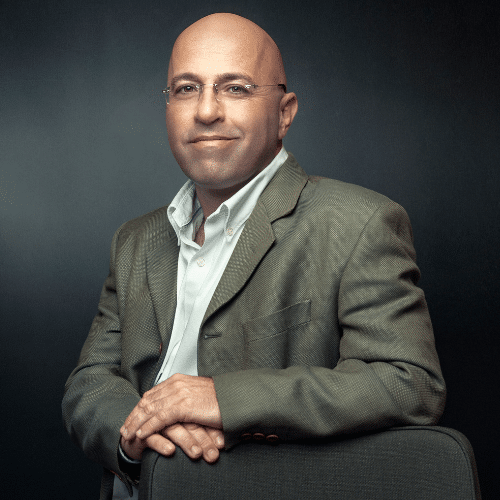
Yariv Lotan
VP of Product and Data; Startup Nation Central
Israeli High-Tech – A National Powerhouse with Global Impact
Israel’s high-tech sector has evolved from the ‘Startup Nation’ into a scale-up powerhouse, cementing its role as a critical driver of the nation’s economic resilience and a significant force in global innovation. This report by Startup Nation Central and the Aaron Institute for Economic Policy charts this trajectory through three core pillars: significance to the domestic economy, performance on the global stage, and its growing impact worldwide.
Pillar 1: The Indispensable Engine of Israel's Economy
The high-tech sector is the backbone of Israel’s national economy, driving Gross Domestic Product (GDP), exports, and employment. From 1995-2024, its share of employment doubled from 5% to 10%, while its contribution to GDP has nearly tripled from 7% to 19%. The sector’s contribution to exports has surged from 19% to a majority 56% in the same period. In 2024, Israel’s high-tech sector proved vital to the economy. With 90% of its output directed to exports, it helped shift a projected 10% national GDP deficit into a 3% surplus. The sector’s GDP growth, 6.0% in 2023 and 2.7% in 2024, consistently outpaced the broader economy, reinforcing its role as the backbone of Israel’s economic resilience.
Financially, high tech’s contribution is disproportionately large; despite representing just 10% of the workforce, high tech accounted for at least 25% of total tax revenues in 2020, a figure anticipated to be greater today given its sustained growth. Multinational corporations (MNCs) account for a third of all tech workers and generate 39% of high-tech GDP. The vitality of Israel’s tech ecosystem is evident in its strong performance across markets. M&A deal value jumped 165% to $12.7 billion in 2024, while private funding rose 27% to $10.6 billion. Publicly traded tech companies expanded steadily, with average employee numbers up 22% and revenues growing 33.8% between 2018 and 2024. The defense industry, a central pillar of the ecosystem, also reached record exports of $14.8 billion in 2024.
Pillar 2: Exceptionalism on the Global Stage
Globally, Israel’s high-tech sector stands out for its scale and specialization. It accounts for 10% of national employment and 20% of GDP, compared to 5% and 10% in the United States, and 4% and 8% on average in European peers like Austria, Denmark, and Sweden. This strength is driven by a deep talent pool: 48% of Israel’s high-tech employees work in R&D, similar to the U.S. at 50%. ICT specialists make up 16.4% of Israel’s total workforce, more than double the share in the U.S. (6%) and EU (5.3%). This expertise positions Israel as the global leader in ICT service exports, ranked first worldwide as a share of total trade.
Investment trends also highlight Israel’s unique position. While private funding trends align with those in the US, they exhibit sharper upward and downward turns, and in 2024, Israel’s funding growth outperformed both Europe and Asia.
The 2024 Global Innovation Index (GII) underscores this further: Israel ranks 14th among OECD countries and 15th globally. Critically, it ranks 3rd worldwide for Innovation Inputs, ahead of the USA (7th), excelling in R&D expenditure, venture capital received, and university-industry R&D collaboration. In Innovation Outputs, Israel is an impressive 4th globally, again ahead of the USA (11th), leading the world in unicorn valuations as a percentage of GDP and ICT services exports as a percentage of trade.
Pillar 3: Israel's Expanding Technological Footprint on the World
Beyond its economic weight and global benchmarks, the story of Israeli high-tech is one of growing worldwide impact. Israel has long set its sights on turning bold ideas into technologies that address humanity’s toughest challenges. That ambition is now visible on the global stage.
In cybersecurity and artificial intelligence, Israeli companies have built leadership that continues to draw multinational investment and expansion. In defense, the world looks to Israel for advanced systems, from missile defense to cutting-edge radar, underscoring its unique role as a provider of specialized, mission-critical technologies.
Forward by the Aaron Institute for Economic Policy

Professor Zvi Eckstein
Head of Aaron Institute for Economic Policy, Tiomkin School of Economics, Reichman University
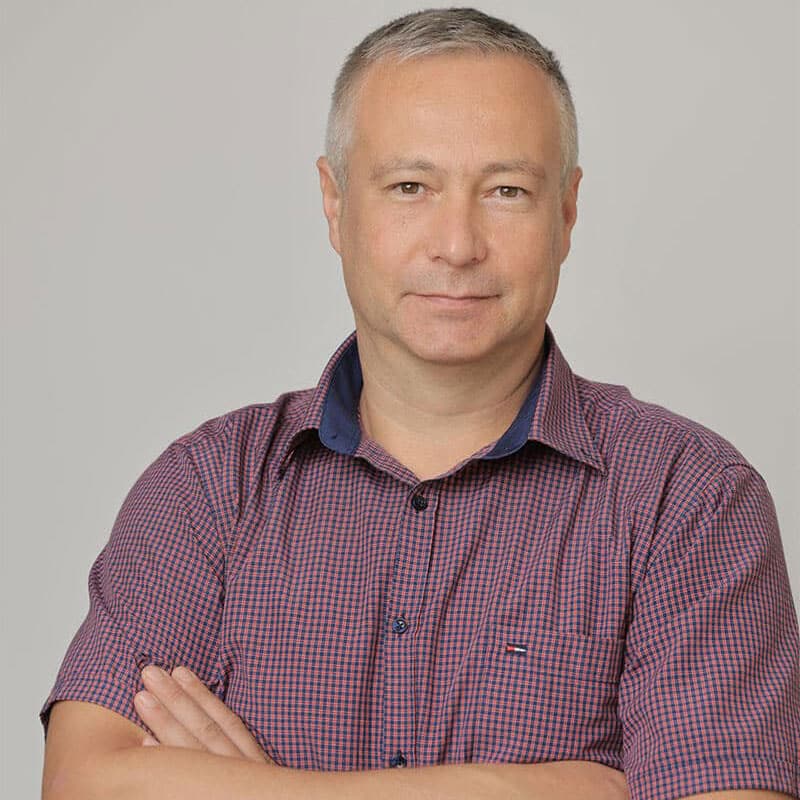
Dr. Sergei Sumkin
Senior Researcher, Aaron Institute for Economic Policy, Tiomkin School of Economics, Reichman University
The High-Tech sector is the battleship of Israel’s economy
Since the October 7 war, Israel’s high-tech sector has proven its resilience, helping offset a sharp slowdown in national economic growth, which dropped from an average of 4.2% in 2017–2022 to 2.0% in 2023 and just 0.7% in 2024.
This resilience stems from the sector’s diverse makeup: multinational corporations, fast-scaling startups, and a globally leading defense industry that has expanded rapidly since 2022. It is powered by a highly skilled workforce and strong R&D capacity, which continue to attract multinational R&D centers and foreign VC investment, even during wartime.
To sustain growth, economic policy must keep high tech at the core of Israel’s economy. Supporting innovation and digital transformation across all industries is essential to achieve at least 3.5% growth, ensure the economy can absorb rising defense costs, stabilize the debt-to-GDP ratio, and maintain strong government services.
The Bedrock of Israel's Economy: A Story of Unmatched Growth
The high-tech sector is the primary engine of economic growth for Israel as a key source of employment, exports, and taxes. It has become a global benchmark for innovation-led growth.
High-Tech: Powering Economic Growth, Exports and Stability
Since 1995, tech employment in Israel has doubled, rising from 5% to 10% of the total workforce by 2024. Over the same period, the sector’s share of GDP grew from 7% to 19%, while its contribution to exports nearly tripled, climbing from 19% to 56%.
From 2017 to 2022, the high-tech sector’s GDP expanded at an average annual rate of 9.1%. In 2023 and 2024, the sector continued to outperform the broader economy with GDP growth of 6.0% and 2.7% respectively, helping to offset a national slowdown.With 90% of its output exported, high-tech was pivotal in 2024, shifting a projected 10% GDP deficit into a 3% surplus. Today, high-tech is more than a growth engine; it is Israel’s foundation for economic resilience, serving as the country’s business plan in times of both stability and crisis.
High-Tech’s Outsized Impact on Israel’s Tax Base and Economic Vitality
High-tech is also a major driver of Israel’s tax revenues and fiscal stability. Although it employs only 10% of the workforce, in 2020 the sector generated 25% of total tax revenues, including at least 32% of income tax, 20% of national insurance, and 14% of corporate tax. While no updated figures have been published since 2020, the sector’s faster growth in employment, exports, GDP, and wages between 2021 and 2024 suggests its share of national tax contributions has only increased. This outsized role highlights high-tech’s importance in strengthening Israel’s fiscal position and current account surplus.
Global Leadership & Competitive Strength
Israel’s high-tech sector outperforms global peers by a wide margin. It employs 10% of the workforce and contributes 20% of GDP. In comparison, high-tech in the United States accounts for only 5% of employment and 10% of GDP. Among leading European countries such as Austria, Denmark, Finland, the Netherlands, and Sweden, the averages are even lower, at 4% of employment and 8% of GDP.
Israel’s Global Edge in R&D Specialization and ICT Expertise
Nearly half of Israel’s high-tech employees (48%) work in R&D, a level comparable to the U.S. at 50%. The workforce is highly specialized, with ICT specialists making up 16.4% of Israel’s total labor force—more than double the share in the U.S. (6%) and EU (5.3%). This expertise is reflected in Israel’s Global Innovation Index ranking as 1st globally for ICT service exports as a share of total trade.
Strategic MNC Partnerships Propel Innovation and Global Market Reach
Multinational corporations (MNCs) are a core of Israel’s high-tech economy. Their presence in Israel has grown substantially, from 174 MNCs R&D centers in 2014 to 429 in 2024, a 2.5x increase over 10 years.
Today, multinational corporations (MNCs) employ 33% of Israel’s tech workforce and generate 39% of the sector’s GDP. An overwhelming 95% of their output is exported, mostly to U.S. parent companies. Foreign-owned firms are especially dominant in R&D: in 2023, about 40% of their employees worked in R&D centers, and from 2019 to 2023 nearly 75% of those roles were R&D-focused.
Israel’s innovation ecosystem thrives on this global integration. Collaboration between startups and MNCs drives productivity, accelerates knowledge transfer, and produces high-value exits. Global leaders in cybersecurity and artificial intelligence continue to expand their presence in Israel, strengthening its position as a strategic innovation hub. Overall, MNCs account for roughly half of Israel’s high-tech exports, underscoring their critical role in sustaining the country’s global leadership in innovation.
Israel’s M&A Exits Reflect Sector Strength and Renewed Investor Confidence
Between 2018 and 2024, Israel’s M&A landscape reflected both global economic shifts and the resilience of its tech sector. After steady growth through 2020, activity surged in 2021 to a record $10.1 billion and 149 exits, the peak of investor enthusiasm. The following two years saw a slowdown, as global tightening and the October 7 war dampened investment. By 2023, deal value had fallen to $4.8 billion and deal count dropped to just 71, the lowest in years.
In 2024, the market rebounded sharply. M&A value soared 165% year over year to $12.7 billion, while deal count rose 25% to 90 exits. This recovery, despite global uncertainty, signaled renewed confidence in Israeli innovation and strong international demand for its technologies.
That momentum is accelerating in 2025. Two landmark transactions, Google’s $32 billion acquisition of Wiz and Palo Alto Networks’ $25 billion acquisition of CyberArk, set a new record for Israeli tech exits. These historic deals reaffirm Israel’s central role in the global innovation economy and highlight its leadership in fields like cybersecurity.
High-tech’s impact on Israel’s economy is driven in large part by its strong ability to attract foreign investment. Since 2019, Israel’s private funding trends have generally followed U.S. patterns, though with sharper ups and downs.
In 2024, Israel raised $10.6 billion across 766 rounds, a 27% increase in capital. The U.S. showed a similar rise, with $210 billion invested across 18,600 rounds, up 28%. Both markets saw fewer deals, but the decline was steeper in the U.S. (down 16%) than in Israel (down 4%).
Israel also outperformed other regions. Europe recorded $61 billion across 12,000 rounds, a 4% decline in funding and a 27% drop in deal count. Asia saw the sharpest contraction, with $76 billion raised in 12,000 rounds, down 24% in funding and 26% in deal volume.
Israel
USA
Europe
Asia
Strategic Sectors and Strong Rounds Reinforce Israel’s Global Investment Appeal
Israel’s growth in 2024 was driven by core sectors such as cybersecurity, defense, and business software, indicating the ecosystem’s strategic alignment with global innovation demand. Funding rose even as deal volumes stayed subdued, signaling a shift toward larger, high-conviction investments in more mature companies. These trends reinforce Israel’s position as a consistent investment destination. Despite both external and internal pressures, it continues to operate as a top-tier tech ecosystem with a proven ability to attract capital and scale innovation.
One clear measure of this strength is median funding round size, where Israel has consistently outpaced the United States. In 2024, Israel’s median round reached $8 million, marking a strong recovery and return to its long-term growth path after the slowdown in 2023 and early 2024, likely tied to uncertainty around the judicial overhaul and the war. Momentum accelerated in Q4 2024, when the median reached $11 million, the fifth consecutive quarter of growth and a clear sign of renewed investor confidence. By comparison, the U.S. median funding size rose more steadily, reaching $5.3 million.
A Global Innovation Powerhouse: Israel Leads Global Benchmarks in R&D and Tech Performance
At the heart of global innovation, Israel continues to transform bold ideas into technologies that address the world’s toughest challenges. The 2024 Global Innovation Index (GII), published by the World Intellectual Property Organization with Cornell University and INSEAD, places Israel 14th among OECD countries and 15th worldwide out of 132 economies.
The GII measures innovation through 80 indicators, split into inputs, the conditions that enable innovation, such as institutions, research, infrastructure, and business sophistication, and outputs, which capture the tangible results, like new technologies and creative products. Together, these inputs and outputs reflect the full innovation journey, from idea to global impact.
Israel stands out in this journey. On the input side, it ranks 3rd globally, ahead of the United States (7th) and the benchmark group of high-income innovation economies, including Germany, Sweden, Switzerland, and Singapore. This leadership is built on three pillars: world-leading R&D investment, unmatched venture capital flows relative to GDP, and deep collaboration between universities and industry. These factors capture the entire lifecycle of innovation, from knowledge creation to funding to commercialization.
On the output side, Israel ranks 4th globally, again ahead of the U.S. (11th). It leads the world in unicorn valuations as a percentage of GDP and in ICT service exports as a share of trade. These results demonstrate not only the strength of Israel’s innovation infrastructure but also its ability to translate ideas into global impact.
With world-class inputs and high-performing outputs, Israel is positioned to drive the next wave of technology-driven growth, cementing its role as a global hub where innovation is not just created but scaled to solve pressing global challenges.
Flourishing Key Sectors & Future Outlook
Between 2018 and 2024, Israel’s public tech companies saw significant expansion. The average number of employees per company grew 22%, rising from 1,213 to 1,479. Revenues grew even faster, up 33.8% from $426 million to $570 million.
Israeli NASDAQ Companies Rebound with Stronger Efficiency and Growth
Data from 139 Israeli public companies listed on NASDAQ highlights trends in revenue per employee, a key measure of efficiency. This metric declined from $375K in 2019 to $312K in 2021 during the COVID-19 pandemic but began recovering in 2022. By 2024, revenue per employee had returned to 2019 levels.
The rebound from 2022 to 2024 was especially strong: average revenues grew by $184 million, while revenue per employee rose 20%.
Overall, the analysis shows that Israeli public companies on NASDAQ not only recovered from challenges but emerged stronger, using innovation and workforce expansion to deliver sustained economic impact. These results mirror the broader resilience of Israel’s tech ecosystem and its ability to stay competitive in global markets.
Defense Innovation Drives Record Exports and Global Demand
In 2024, Israel’s defense industry hit a record $14.8 billion in exports, marking its third straight year of historic growth. The surge is driven by rising global demand for advanced Israeli systems, including missile defense, radar, and electronic warfare technologies. While labor productivity in defense still trails the broader high-tech sector, the industry delivers strong operational profitability, with military-focused divisions exceeding 8.5%. With continued strategic investment and greater efficiency in civilian operations, the sector has significant potential to expand and strengthen Israel’s global leadership in defense innovation.
Cybersecurity as a Pillar of Israel’s Tech Leadership and Global Strategic Value
Israel’s cybersecurity ecosystem is deeply linked to the defense sector, tackling challenges from state-sponsored cyberattacks to protecting critical infrastructure. It is a global leader, attracting over 40% of the private funding invested in U.S. cybersecurity. Half of the world’s top 10 cybersecurity companies were founded by Israelis, and seven still operate R&D centers locally. All 10 have acquired Israeli firms in recent years, underscoring Israel’s central role in shaping global cybersecurity innovation.
Investor confidence in the sector is clear. In 2024, the median funding round in Israeli cybersecurity reached $18 million, more than double the tech ecosystem’s overall median of $8 million. This gap reflects the sector’s strategic importance and its strong growth trajectory.
Cybersecurity remains a cornerstone of Israel’s high-tech leadership, reinforcing its global role in addressing the intertwined challenges of security, defense, and innovation in an increasingly volatile world.
Two additional sectors, Health Tech and AgriFood Tech, stand out for their scale and long-term potential. Health Tech is the largest sector in Israel’s tech ecosystem, with nearly 1,700 companies representing 24% of all tech firms. In 2024, it raised $1.3 billion across 188 funding rounds, reflecting both strong investor activity and a wide base of innovation.
AgriFood Tech also has a significant footprint, with about 700 companies. While it does not yet lead in total capital raised, its specialization and direct relevance to pressing global challenges position it as a key driver of sustained innovation and impact.
Together, these sectors highlight how Israel’s innovation ecosystem is not only powering economic growth but also addressing critical global needs in health, food, and climate resilience.
Challenges
Stabilizing Growth Drivers: Strengthening Talent, Startup Activity, and Innovation Capacity
Between 2023 and 2024, Israel’s high-tech sector faced one of its most challenging periods in recent memory. Geopolitical and economic instability, driven by judicial reform proposals, the October 7 war, and the 12-day conflict with Iran, disrupted business continuity and heightened concerns about property rights and talent retention. Reserve duty obligations further strained the sector: 2.9% of the high-tech workforce was mobilized in 2024, serving an average of 145 days, with 60% of them in R&D roles. The result was a sharp hit to Israel’s most critical innovation capacity.
The startup ecosystem also reached a turning point. For the first time in over a decade, Israel recorded a net loss of startups, as new company formation slowed and closures accelerated. This reversal reflects the weight of uncertainty and the difficulties facing early-stage entrepreneurs.
Challenges in human capital are compounding the strain. Too much of the workforce remains concentrated in R&D, leaving business and operational roles underdeveloped and limiting companies’ ability to scale globally. Talent remains unevenly distributed, with Israel’s geographic periphery underrepresented in high-tech employment, while high school matriculation rates in STEM fields have stagnated.
Knowledge transfer between academia and industry also lags. Underfunded Technology Transfer Offices (TTOs), weak commercialization incentives for researchers, and heavy bureaucracy in government support programs slow the path from research to market-ready innovation.
At the same time, global competition is accelerating. The U.S., China, and the EU are rapidly scaling public investments in AI and applied innovation. While AI offers opportunities for major productivity gains, it also threatens to displace workers in routine technical roles, demanding faster and broader reskilling initiatives to preserve Israel’s competitive edge.
Building the Foundations of Future Growth: A Human-Centered, AI-Driven Vision for National Innovation
To overcome today’s challenges and secure its future leadership, Israel must double down on human capital and stronger bridges between academia and industry. Expanding the high-tech workforce is central to this effort. The Perlmutter Committee has set a clear path forward: aim for 3.5% annual growth in tech employment, increase the share of tech graduates and high school matriculants, and bring more underrepresented populations into the sector. Alongside this, digital and AI literacy should reach 80% of the population by 2030, ensuring that innovation is not confined to high-tech alone but embedded across society.
Knowledge transfer is another critical pillar. Strengthening TTOs, incentivizing commercialization for researchers, and aligning Israel’s tax policies with international standards can accelerate the flow of ideas from universities to the market. Just as importantly, driving a 2% annual productivity increase across non-tech sectors through digitalization and R&D will extend the benefits of innovation across the entire economy.
AI represents both the greatest challenge and the greatest opportunity. The strategy calls for bold investments in AI education at every level, reskilling today’s workforce, and creating the conditions to attract global AI talent. It also means fueling AI innovation in the business sector: supporting startups, promoting data sharing, encouraging adoption across industries, and fostering public-private partnerships that can accelerate scale.
With the right policies and investments, Israel can not only weather current pressures but also strengthen its position as a top-tier tech ecosystem with the resilience to attract capital, grow talent, and scale innovation into global impact.
Summary
Israel’s high-tech sector continues to anchor national resilience, with 2024 marking another year of growth and global competitiveness. Today, high tech generates 19% of GDP, employs 10% of the national workforce, and drives 56% of exports. These figures have nearly tripled since 1995. Its impact was especially visible in 2024, when the sector helped turn a projected 10% GDP deficit into a 3% surplus, fueled by the fact that 90% of its output is exported.
The sector’s fiscal weight is equally striking. Despite employing just one tenth of the workforce, it contributes over one quarter of Israel’s tax revenues. Capital markets echoed this strength: M&A deal value surged 165% year over year to $12.7 billion, while private funding climbed 27% to $10.6 billion. By 2025, Israel experienced one of the most active M&A periods in its history, totaling $63.9 billion, including two record-breaking deals, Google’s $32 billion acquisition of Wiz and Palo Alto Networks’ $25 billion purchase of CyberArk.
Israel’s edge lies in its unmatched innovation capacity. With 48% of high-tech employees working in R&D and ICT specialists making up 16.4% of the total workforce, Israel outpaces both the U.S. and EU. The Global Innovation Index 2024 places the country 3rd globally for key innovation inputs and 4th for outputs, highlighting world-leading rankings in venture capital intensity, university–industry collaboration, and ICT services exports.
Multinational corporations (MNCs) are another pillar of strength. They employ 33% of Israel’s tech workforce, generate 39% of sector GDP, and export 95% of their output, mostly to U.S. parent companies. Their presence has grown dramatically, from 174 R&D centers in 2014 to 429 in 2024, underscoring Israel’s deep integration into the global innovation economy.
Strategic sectors highlight this leadership on the world stage. Defense exports reached a record $14.8 billion in 2024, powered by global demand for Israeli-developed missile defense, radar, and electronic warfare systems. Cybersecurity also reinforced Israel’s leadership, with median funding rounds hitting $18 million, more than double the national median, reflecting investor confidence in the country’s critical expertise.
Yet challenges remain. The startup ecosystem saw its first net contraction in more than a decade, while geopolitical instability and reserve duty mobilization disrupted the talent pipeline. Looking ahead, sustaining momentum will require bold policy action: scaling inclusive talent pathways, strengthening collaboration between academia and industry, and investing in AI infrastructure to fuel the next wave of growth.
Taken together, these efforts will ensure Israel’s high-tech sector continues to serve not only as the backbone of its economy but also as a global source of innovation and resilience in an uncertain world.
Methodology Notes
- The report is based on the following sources:
- The Startup Nation Finder database.
- “The contribution of Israel’s High-Tech Sector to Economic Resilience and Macroeconomic Performance”, a paper published by the Aaron Institute for Economic Policy at Reichman University Policy Paper, April 2025.
- Pitchbook.
- The definition and criteria for companies, investors, and Multinationals (MNC’s) can be found in the Finder Glossary.
- Aggregate metrics may include rounds that are not visible in Finder, per the request of the profile owners.
- Funding Type definitions:
- Private Funding includes the following round types: Pre Seed, Seed, A, B, C, D, E, F, G Rounds, Convertible Debt, SAFE, Equity Crowdfunding, and Undisclosed rounds.
- Funding for Public companies includes the following event types: IPO (including IPO via SPAC or Reverse Merger), Non-Initial Public Offering, PIPE.
- The following events are excluded: Crowdfunding, Debt Financing, Secondary, and Grants.
About Startup Nation Central
Startup Nation Central is a free-acting NGO providing global solution seekers frictionless access to Israel’s bold and impatient innovators to help tackle the world’s most pressing challenges. Our free business engagement platform, Finder, grants unrestricted access to real-time, updated information and deep business insights into the Israeli tech ecosystem.

About The Aaron Institute for Economic Policy
The vision of the Aaron Institute for Economic Policy in the Tiomkin School of Economics is to support sustainable economic growth and social resilience, along with poverty reduction. To achieve these goals, the institution strives to design a strategy based on measurable goals, which can be subjected to international comparison, and propose detailed plans for economic policies based on the most updated international knowledge. We focus primarily on reforms towards economic growth stemming from increasing employment and raising the GDP per hour worked (labor productivity) in Israel.
The key measure of sustainable economic growth – GDP per capita – is still low in Israel compared to leading developed countries, and so is labor productivity. Through its economic studies, the Aaron Institute presents goals, innovative policy tools, and reforms to promote growth, high-quality employment, and labor productivity.
The Institute’s mission is to help shape the socioeconomic policy in Israel through the development of long-term plans that address the full range of economic and social issues facing the Israeli economy. Our main focus is families with less than median income, who comprise significant parts of the Arab and Haredi (ultra-Orthodox) populations. In these groups specifically, increasing employment and productivity would greatly contribute to achieving the goals of growth, social resilience, and poverty reduction. In addition, our studies aim to influence the professional discourse, and to stimulate discussion based on reliable information and socioeconomic research that offers practical tools to achieve these goals.
Board Members:
Mr. Shlomo Dovrat (Chairman), Mr. Jaron Lotan (Vice Chairman), Ms. Yael Andorn, Mr. Yarom Ariav, Mr. Gabi Ashkenazi, Ms. Dita Bronizki, Ms. Yael Dovrat, Prof. Zvi Eckstein, Prof. Martin Eichenbaum, Prof. Itay Goldstein, Mr. Koby Haber, Prof. Niron Hashai, Mr. Rony Hizkiyahu, Ms. Anat Levin, Prof. Rafi Melnick, Mr. Ronen Nir, Dr. Tali Regev, Mr. Haim Shani, Ms. Ofra Strauss, Mr. Imad Telhami.
Head:
Prof. Zvi Eckstein
Scientific Committee:
Prof. Zvi Eckstein (Chairman), Prof. Efraim Benmelech, Prof. Martin Eichenbaum, Dr. Assaf Eilat, Prof. Yaniv Grinstein, Prof. Zvi Hercowitz, Prof. Osnat Lifshitz, Prof. Rafi Melnick, Prof. Omer Moav, Dr. Tali Regev, Dr. Yaniv Yedid-Levi.
Contact details:
Reichman University, P.O. Box 167, Herzliya, ISRAEL 4610101
Phone: 972-9-9602431
